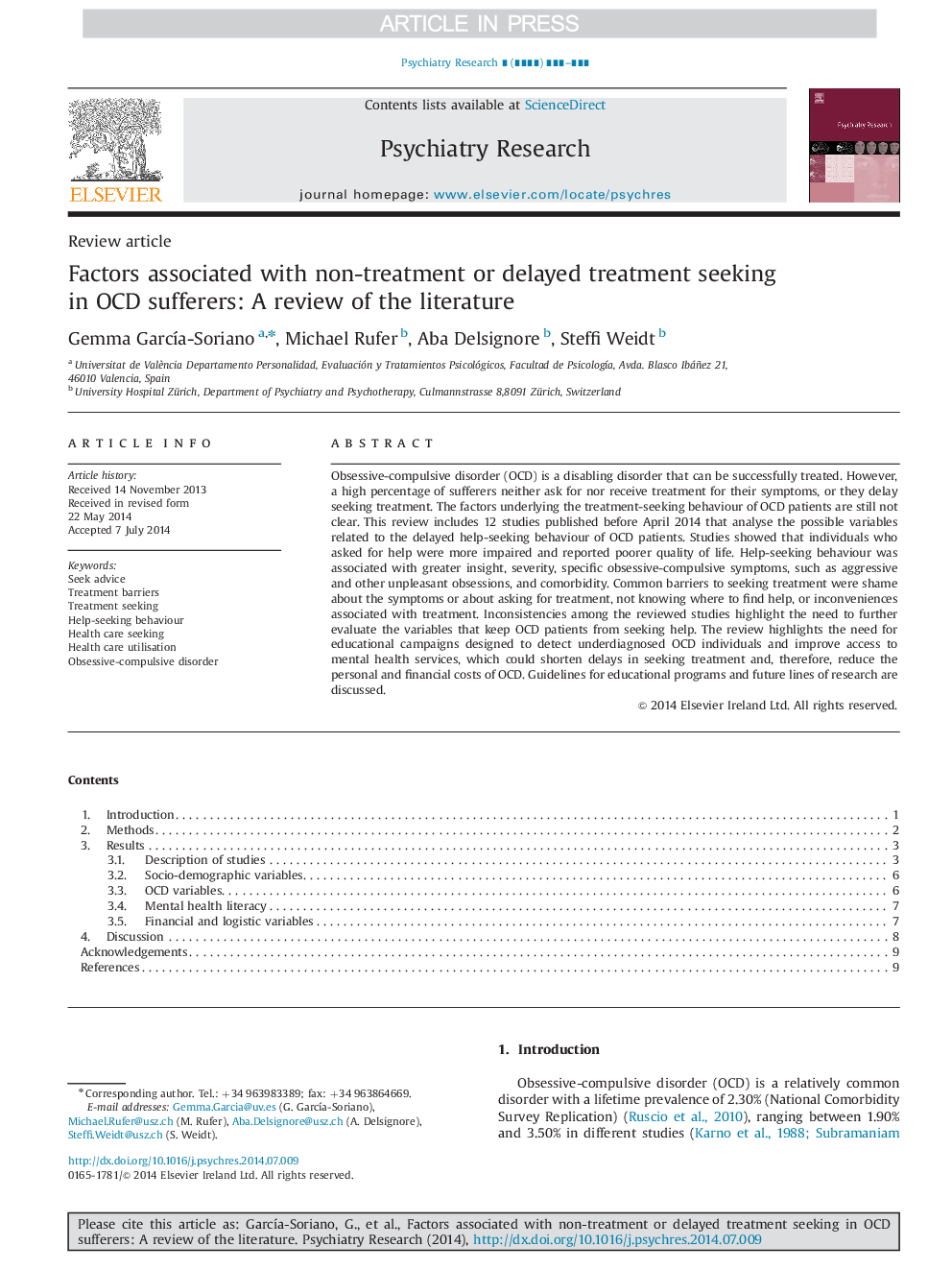| Article ID | Journal | Published Year | Pages | File Type |
|---|---|---|---|---|
| 6814543 | Psychiatry Research | 2014 | 10 Pages |
Abstract
Obsessive-compulsive disorder (OCD) is a disabling disorder that can be successfully treated. However, a high percentage of sufferers neither ask for nor receive treatment for their symptoms, or they delay seeking treatment. The factors underlying the treatment-seeking behaviour of OCD patients are still not clear. This review includes 12 studies published before April 2014 that analyse the possible variables related to the delayed help-seeking behaviour of OCD patients. Studies showed that individuals who asked for help were more impaired and reported poorer quality of life. Help-seeking behaviour was associated with greater insight, severity, specific obsessive-compulsive symptoms, such as aggressive and other unpleasant obsessions, and comorbidity. Common barriers to seeking treatment were shame about the symptoms or about asking for treatment, not knowing where to find help, or inconveniences associated with treatment. Inconsistencies among the reviewed studies highlight the need to further evaluate the variables that keep OCD patients from seeking help. The review highlights the need for educational campaigns designed to detect underdiagnosed OCD individuals and improve access to mental health services, which could shorten delays in seeking treatment and, therefore, reduce the personal and financial costs of OCD. Guidelines for educational programs and future lines of research are discussed.
Keywords
Related Topics
Life Sciences
Neuroscience
Biological Psychiatry
Authors
Gemma GarcÃa-Soriano, Michael Rufer, Aba Delsignore, Steffi Weidt,
